#п��й
Explore tagged Tumblr posts
Text
.
6 notes
·
View notes
Text
Ploho
Край ночи
(ПТВП cover)
1 note
·
View note
Text
That ask I got earlier was cool. So here's a poll with the expanded version of Russian alphabet
#language#letters#sexy letters#russian#cyrillic alphabet#cyrillic#russian letters are sexy#letters are so cool#incognito polls#polls on tumblr#tumblr polls#random polls#poll time#polls#my polls#pickaletter
81 notes
·
View notes
Text

Отпустите меня в ... тишину ... Где я буду единственным звуком ... И меня там у с л ы ш а т ... одну ... О т п у с т и т е меня в тишину ...
Отпустите меня в ... пустоту ... Я собою заполню пространство ... Нарисую вокруг ... к р а с о т у ... О т п у с т и т е меня в пустоту ...
Отпустите меня во ... вчера ... Не держите ... какое там завтра ... Отпустите ... давно мне пора ... О т п у с т и т е меня во вчера ... п о ж а л у й с т а ...
22 notes
·
View notes
Text
ᅠᅠᅠᅠᅠᅠᅠᅠᅠᅠᅠᅠᅠᅠᅠᅠᅠᅠᅠ #tfpᅠᅠᅠᅠᅠᅠ
━━━━━━━━━━━━━
— ᴀɴʏ ʟᴀꜱᴛ ᴡᴏʀᴅꜱ?
ʀɪɢʜᴛ, ꜱɪʟᴇɴᴛ ᴛʏᴘᴇ.
━━━━━━━━━━━━━━━━━━━━━━━━━━━━━━━━━━
- tags: #deсерticon x #soundwave #quiet_one
— последние слова? а ты у нас тихий тип

47 notes
·
View notes
Text
Дерзкая стрельба
01.06.2025
Две или три недели назад в меня стреляли!
Или уже месяц назад как, тринадцатого мая, если точнее по дате на видео, а я все пост не мог написать.
Еб><_ь, стреляли!?
Да! Вот фотки из видоса, который я снял:
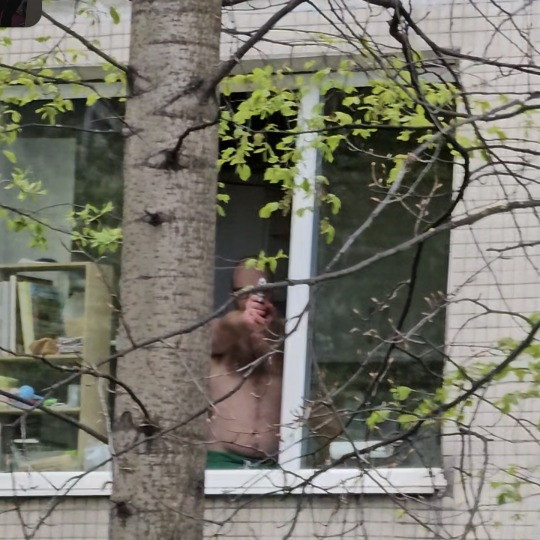
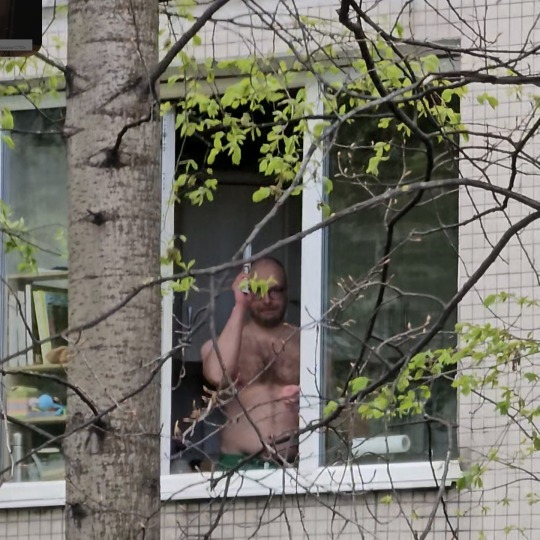
На работе! Шок, трэш, угар контент!
Но это правда!
Я всё хочу вести блог с места событий, в моменте, и вроде всё идёт хорошо, но вдруг я проваливаюсь в работу или уныние, архитектура — это сложно, а ещё у нас с женой лошадь и я стараюсь ��ам тоже бывать и дружить с лошадём, всё это время занимает — не до блога.
Корочь если постов нет, значит я счастлив или наоборот, если постов нет, то я в унынии и тоске, заряжаю батареи, стираю паруса, смолю палубу и т.д.
Ещё короче, на Пионерской мы строим новый, кайфовый, большой торговый центр, я там архитектор, выхожу со строительной площадки, с планового осмотра, прохожу мимо соседней девятиэтажки, замечаю в окне второго этажа голого мужика, он как раз орёт матом на строителей, я достал свой новый офигенский Самсунг со стократным зумом и стал снимать городского сумасшедшего, на всякий случай!
На какой на><`/й такой всякий случай фоткать голого мужика? А на такой, вдруг чё, вдруг он начнёт кидаться чем то в строителей тяжёлым, да и зимой на нашей парковке кто-то стрелял по машинам, повредил краску и стёкла, если он уже голый и в окне, велика вероятность что и сейчас чего нибудь начудит.
Вдруг это тот чел? Вдруг сейчас начнёт стрелять по людям как по машинам зимой?
И я не ошибся! Он заметил что я начал его снимать, он переключился со строителей на меня, стал ругаться уже на меня и достал пистолет!
Я ускорил шаг, зашёл за угол, раздались хлопки — начал стрелять, с`/|{/\! По мне!
Но хлопки не громкие, оружие воздушное или игрушечное?
Он выстрелил ещё раз, не достаёт до моего угла, а это метров тридцать, значит игрушка подумал я, а он уже открыл хаотичную стрельбу по строителям, пульки стучали об каски.
Я вышел из-за угла, стал снимать его на видео, ну же, ну, доставай ещё раз свою пуколку.
Он крикнул сперва мне, что ща спустится и мне п|/|&д/\, я уже после этого сказл типо давай выходи и тоже поза_пался на него, ну а чё он!?
Потом этот трусливый говноед стал кричать кому-то из строителей, типа ё₽|–|И (ударь) его, ну типо меня, и он заплатит за это пять штук. Понятно что строители не стали бить своего архитектора, хотя наверное любой строитель нет нет да и бесплатно бы приложился на архитектора, чтобы не зая_ывал со своими цветами и претензиями к качеству).
Но сумасшедший чел достал уже всех и видимо сильней архитекторов, чуваки с юга стали забрасывать его окно камнями, в ответ на выстрелы. Я ждал пока он снова достанет свой пистик. Чтобы всё снять и сдать его в милицию.
И вот он наконец снова достал оружие и стал стрелять, да, я уже понял что до меня не достанет и что это не настоящее оружие, но когда в тебя целятся даже игрушкой — это стрёмно, первая мысль — я вернусь и у___ю тебя и всю твою вонючую семью, п_ор! Еб_ый!
Но это только мысли, ясное дело что всерьёз я так не подумал, а тем временем на Самсунге реально клёвый зум, я всё это снял, лицо, пистолет, стрельбу, позвонил в полицию, его задержали и на следующий день игрушечный пестик игрушечного бандита лежал передо мной на столе, пока с моих слов писали показания, сам чувак сидел в этом же отделении милиции, в изоляторе.
Фотку игрушечного оружия не прикладываю, потому что обещал следовательнице не публиковать, эт улика, видос постить она разрешила, раз это мой видос.
Моя любимая Российская федерация и дорогая милиция не дали меня в обиду и это круто, мне плюс к счастью и никакого незакрытого гештальта и самосуда, чувака наказали административным нарушением и штрафом.
15 notes
·
View notes
Text
а б в г ґ д е є ж з и і ї й к л м н о п р с т у ф х ц ч ш щ ь ю я А Б В Г Ґ Д Е Є Ж З И І Ї Й К Л М Н О П Р С Т У Ф Х Ц Ч Ш Щ Ь Ю Я
10 notes
·
View notes
Text
Modding update: got a list of all the characters which are supported by Pathologic's font files. Surprising amount of diacritics here that I'm fairly sure are never used in text... the file format isn't that scary though, should be viable to make an editor :-)
[' ', '!', '"', '#', '$', '%', '&', "'", '(', ')', '*', '+', ',', '-', '.', '/', '0', '1', '2', '3', '4', '5', '6', '7', '8', '9', ':', ';', '<', '=', '>', '?', '@', 'A', 'B', 'C', 'D', 'E', 'F', 'G', 'H', 'I', 'J', 'K', 'L', 'M', 'N', 'O', 'P', 'Q', 'R', 'S', 'T', 'U', 'V', 'W', 'X', 'Y', 'Z', '[', '\', ']', '^', '_', '`', 'a', 'b', 'c', 'd', 'e', 'f', 'g', 'h', 'i', 'j', 'k', 'l', 'm', 'n', 'o', 'p', 'q', 'r', 's', 't', 'u', 'v', 'w', 'x', 'y', 'z', '{', '|', '}', '~', '\xa0', '¡', '¢', '£', '¤', '¥', '¦', '§', '¨', '©', 'ª', '«', '¬', '\xad', '®', '¯', '°', '±', '²', '³', '´', 'µ', '¶', '·', '¸', '¹', 'º', '»', '¼', '½', '¾', '¿', 'À', 'Á', 'Â', 'Ã', 'Ä', 'Å', 'Æ', 'Ç', 'È', 'É', 'Ê', 'Ë', 'Ì', 'Í', 'Î', 'Ï', 'Ð', 'Ñ', 'Ò', 'Ó', 'Ô', 'Õ', 'Ö', '×', 'Ø', 'Ù', 'Ú', 'Û', 'Ü', 'Ý', 'Þ', 'ß', 'à', 'á', 'â', 'ã', 'ä', 'å', 'æ', 'ç', 'è', 'é', 'ê', 'ë', 'ì', 'í', 'î', 'ï', 'ð', 'ñ', 'ò', 'ó', 'ô', 'õ', 'ö', '÷', 'ø', 'ù', 'ú', 'û', 'ü', 'ý', 'þ', 'ÿ', 'Ā', 'ā', 'Ă', 'ă', 'Ą', 'ą', 'Ć', 'ć', 'Ĉ', 'ĉ', 'Č', 'č', 'Ď', 'ď', 'Đ', 'đ', 'Ē', 'ē', 'Ė', 'ė', 'Ę', 'ę', 'Ě', 'ě', 'Ĝ', 'ĝ', 'Ğ', 'ğ', 'Ģ', 'ģ', 'Ĥ', 'ĥ', 'Ī', 'ī', 'Į', 'į', 'İ', 'ı', 'Ĵ', 'ĵ', 'Ķ', 'ķ', 'Ĺ', 'ĺ', 'Ļ', 'ļ', 'Ľ', 'ľ', 'Ł', 'ł', 'Ń', 'ń', 'Ņ', 'ņ', 'Ň', 'ň', 'Ō', 'ō', 'Ŏ', 'ŏ', 'Ő', 'ő', 'Œ', 'œ', 'Ŕ', 'ŕ', 'Ŗ', 'ŗ', 'Ř', 'ř', 'Ś', 'ś', 'Ŝ', 'ŝ', 'Ş', 'ş', 'Š', 'š', 'Ţ', 'ţ', 'Ť', 'ť', 'Ū', 'ū', 'Ŭ', 'ŭ', 'Ů', 'ů', 'Ű', 'ű', 'Ų', 'ų', 'Ÿ', 'Ź', 'ź', 'Ż', 'ż', 'Ž', 'ž', '́', '̓', '̕', '̦', '·', 'π', 'Ё', 'Ђ', 'Ѓ', 'Є', 'Ѕ', 'І', 'Ї', 'Ј', 'Љ', 'Њ', 'Ћ', 'Ќ', 'Ў', 'Џ', 'А', 'Б', 'В', 'Г', 'Д', 'Е', 'Ж', 'З', 'И', 'Й', 'К', 'Л', 'М', 'Н', 'О', 'П', 'Р', 'С', 'Т', 'У', 'Ф', 'Х', 'Ц', 'Ч', 'Ш', 'Щ', 'Ъ', 'Ы', 'Ь', 'Э', 'Ю', 'Я', 'а', 'б', 'в', 'г', 'д', 'е', 'ж', 'з', 'и', 'й', 'к', 'л', 'м', 'н', 'о', 'п', 'р', 'с', 'т', 'у', 'ф', 'х', 'ц', 'ч', 'ш', 'щ', 'ъ', 'ы', 'ь', 'э', 'ю', 'я', 'ё', 'ђ', 'ѓ', 'є', 'ѕ', 'і', 'ї', 'ј', 'љ', 'њ', 'ћ', 'ќ', 'ў', 'џ', 'Ґ', 'ґ', 'Ҙ', 'ҙ', 'Ҫ', 'ҫ', 'Ү', 'ү', 'Ұ', 'ұ', 'һ', 'Ӑ', 'ӑ', 'Ӓ', 'ӓ', 'Ӕ', 'ӕ', 'Ӗ', 'ӗ', 'ә', 'ӛ', 'Ӝ', 'ӝ', 'Ӟ', 'ӟ', 'Ӣ', 'ӣ', 'Ӥ', 'ӥ', 'Ӧ', 'ӧ', 'Ӯ', 'ӯ', 'Ӱ', 'ӱ', 'Ӳ', 'ӳ', 'Ӵ', 'ӵ', 'Ӹ', 'ӹ', '–', '—', '‘', '’', '‚', '“', '”', '„', '†', '‡', '•', '…', '‰', '‹', '›']
#pathologic#datamining#we can use daggers in pathologic text... WHERE are the house of leaves footnotes
15 notes
·
View notes
Note
russian alphabet ?
й, ц, у, к, е, н, г, ш, щ, з, х, ф, ы, в, а, п, р, о, л, д, ж, э, я, ч, с, м, и, т, ь, б, ю
also maybe a собака (dog) & кот (cat)
done, I’ll post when I get home & log in on my computer so I can just make one post instead of like 3 :)
15 notes
·
View notes
Text
. ݁ℐ𝓃𝓉𝓇ℴ 𝜗𝜚 ݁˖
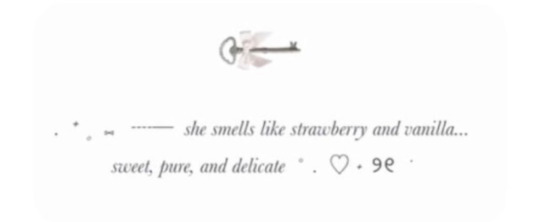
п р о ф е с с и о н а л ь н ы й а н г е л
I s p e a k r u s s i a n , e n g l i s h g e r m a n a n d f r e n c h
O t h e r s o c i a l s = @babydoll_interrupted/lolita444interrupted/rexiebitch111/cocainedoll
M i n o r
B a l l e r i n a / f i g u r e s k a t e r
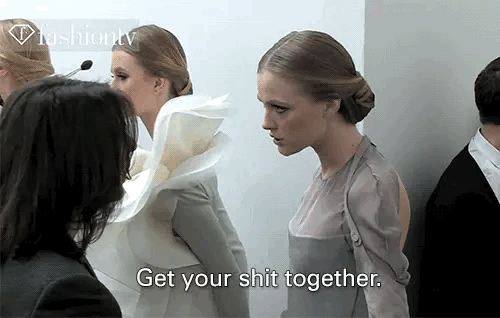
#ballet#coquette#girlblogging#hell is a teenage girl#this is a girlblog#gaslight gatekeep girlboss#angelcore#angel#coqeutte#doll collector#dollette#bimbo doll#dollcore#coquette dollete#ангел#proan4#bambi doll#girlhood#lana del ray aka lizzy grant#lana del rey aesthetic#lana unreleased#lizzy grant aesthetic#ultraviolence#vintage americana#morute#viral#viralpost
19 notes
·
View notes
Text
Знаете это чувство ко��да хочется взяться за голову и заорать на всю страну
Й*бана в рот !!!
Вот
Этот момент меня настиг после прочтения этих строк

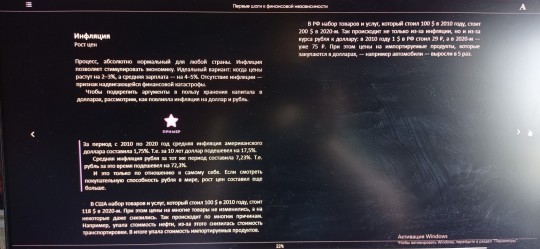
Рубль подешевел на 72,3% и это ещё до сво, и до супер санкций
П*здец, *бучий случай, это то самое непередаваемое чувство, *хуеть просто и не встать 🤬🤬🤬😱
7 notes
·
View notes
Text
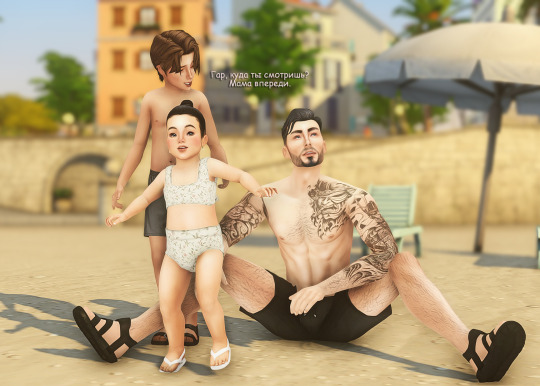
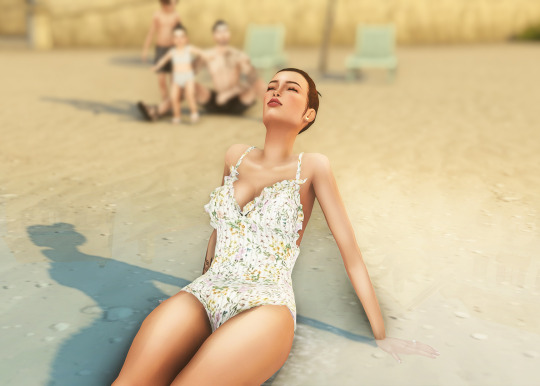
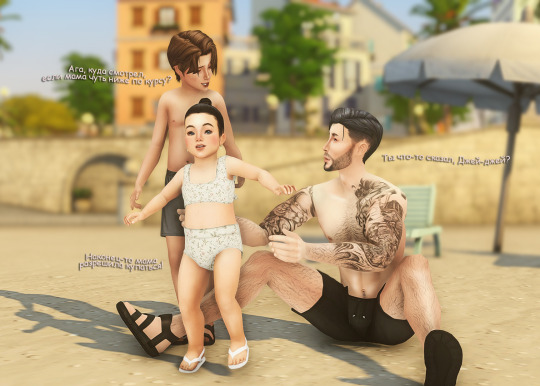




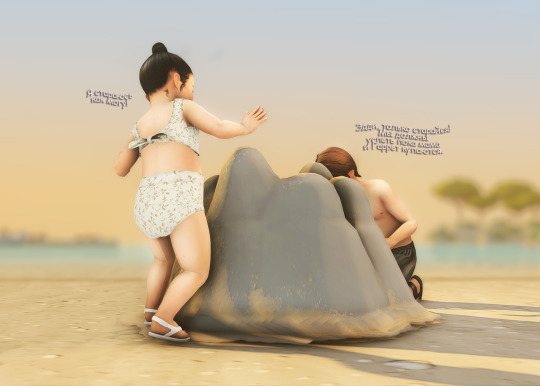
☀️🌊 П Л Я Ж Н Ы Й Д Е Н Ь ☀️🌊
#hart*#ts4#Eddie*#sims 4 screenshots#sims 4 gameplay#the sims 4#simblr#ts4 gameplay#sims 4#ts4 simblr#sims#симс 4#симс 4 скриншоты#симс 4 геймплей
45 notes
·
View notes
Text
Russian Pronunciation
You can give me a tip on Ko-fi if you like this post ☺️ Researching and writing this kind of posts takes time (and my Russian lessons come at a cost), so any amount of support would be greatly appreciated.
Vowels
Although Russian has ten vowel letters (а, е, ё, и, о, у, ы, э, ю, я), there are only five vowel sounds, as they are grouped in pairs according to whether they are hard or soft:
а - я (a - ja) [a] - [ʲa]/[ʲæ]
э - е (e - je) [ɛ] - [ʲe]
ы - и (y - i) [ɨ] - [ʲi]
о - ё (o - jo) [o] - [ʲɵ]
у - ю (u - ju) [u] - [ʲu]/[ʲʉ]
Soft vowels (second column) make the preceding consonant soft. When found in unstressed syllables, some vowels undergo reduction:
о immediately before the stress → а [ɐ]: окно́ [ɐkˈno], Москвá [mɐskˈva]
о and а after the stress and more than one syllable before the stress → [ə]: ко́смос [ˈkosməs], лáмпа [ˈɫampə], хорошо́ [xərɐˈʂo], карандáш [kərɐnˈdaʂ]
е and я right before the stress → и [ʲɪ]: сестрá [sʲɪˈstra], язы́к [ʲɪˈzɨk]
е after the stress and more than one syllable before the stress → [ʲɪ]: но́мер [ˈnomʲɪr], семена́ [sʲɪmʲɪˈna]
я after the stress and more than one syllable before the stress → [ʲɪ]/[ʲə]: де́сять [ˈdʲesʲɪtʲ], вре́мя [ˈvrʲemʲə], языкозна́ние [(j)ɪzɨkɐzˈnanʲɪje]
у before and after the stress → ʊ: мужчи́на [mʊˈɕːinə], Бо́гу [ˈboɣʊ]
Я undergoes another sound change. Reflexive verb endings such as -ться and -тся are pronounced -ца [t͡sə]. For example, учиться [ʊˈt͡ɕit͡sːə], одева́ется [ɐdʲɪˈva(j)ɪt͡sə].
Consonants
Russian consonants also form pairs, depending on whether they are voiced or voiceless:
б - п (b - p) [b] - [p]
в - ф (v - f) [v] - [f]
г - к (g - k) [ɡ] - [k]
д - т (d - t) [d] - [t]
ж - ш (zh - sh) [ʐ] - [ʂ]
з - с (z - s) [z] - [s]
Voiced consonants (first column) at the end of words become voiceless:
б -> [p]: лоб [ɫop]
в -> [f]: о́стров [ˈostrəf]
г -> [k]: ма́ркетинг [ˈmarkʲɪtʲɪnk]
д -> [t]: наро́д [nɐˈrot]
ж -> [ʂ]: муж [muʂ]
з -> [s]: зака́з [zɐˈkas]
When voiced and voiceless consonants are adjacent, the nature of the second consonant determines that of the first:
voiced + voiceless -> voiceless + voiceless: ю́бка [ˈjupkə]
voiceless + voiced (except в) -> voiced + voiced: сде́лать [ˈzʲdʲeɫətʲ]
There are also four unpaired voiced consonants:
л (l) [ɫ]
м (m) [m]
н (n) [n]
р (r) [r]
And four unpaired voiceless consonants:
х (kh) [x]
ц (ts) [t͡s]
ч (ch) [t͡ɕ]
щ (shch) [ɕː]
Consonants have an additional distinction: they can be soft or hard. Soft consonants are palatalized and thus pronounced as if y [ʲ] followed them.
й [j], ч [t͡ɕ], and щ [ɕː] are always soft or palatalized.
ж [ʐ], ш [ʂ], and ц [t͡s`] are always hard or unpalatalized.
All other consonants can be either soft or hard depending on the letter following them. Palatalization typically occurs in these cases:
Before soft vowels (е, ё, и, ю, я): апте́ка [ɐpˈtʲekə], ребёнок [rʲɪˈbʲɵnək], мини́стр [mʲɪˈnʲistr], костю́м [kɐsʲˈtʲum], ку́хня [ˈkuxnʲə]
Before the soft sign (ь): конь [konʲ]
In many loanwords, consonants are not palatalized before е, e.g., тест [tɛst].
The hard sign (ъ) is rarely used and indicates the hardness of the preceding consonant. So, even if the consonant is followed by a soft vowel, it still reads hard: объе́кт [ɐbˈjekt], съёжиться [ˈsjɵʐɨt͡sə], синъицю́ань [sʲɨˈnʲit͡sʲuʌnʲ], адъю́нкт [ɐˈdjunkt], объя́ть [ɐbˈjætʲ]. Ъ is often added after prefixes.
In the genitive pronoun его and endings -его and -ого, г is pronounced as в [v]: его́ [(j)��ˈvo], моего́ [mə(j)ɪˈvo], но́вого [ˈnovəvə]. They can also appear in compound words, such as the word for “today” which literally means “this day”: сего́ + дня = сего́дня [sʲɪˈvodʲnʲə]. This only applies to endings and not when -его and -ого are part of the word’s stem, e.g., мно́го [ˈmnoɡə].
Г also changes its pronunciation before ч, becoming х [x] in two words and their derivatives, лёгкий [ˈlʲɵxʲkʲɪj] and мягкий [ˈmʲæxʲkʲɪj].
Ч is pronounced as ш [ʂ] before н and т: конечно [kɐˈnʲeʂnə], что [ʂto].
Some consonant clusters are simplified by dropping one of the consonants, e.g., расще́лина [rɐˈɕːelʲɪnə]. Dental stops are dropped between a dental consonant and a dental lateral or nasal one: со́лнце [ˈsont͡sə], се́рдце [ˈsʲert͡sə].
The cluster -вств- is pronounced -ств- [stv] in the words здра́вствуй(те) [ˈzdrastvʊj(tʲe)], чу́вство [ˈt͡ʃu̟fstvo], and безмо́лвствовать [bʲɪzˈmoɫstvəvətʲ].
15 notes
·
View notes
Text
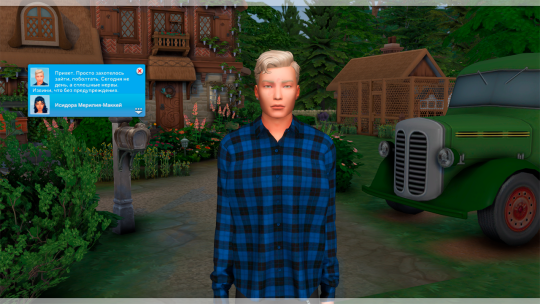
?????????????
Все норм? Это не смешно уже, он знать даже не должен, что Иси здесь...
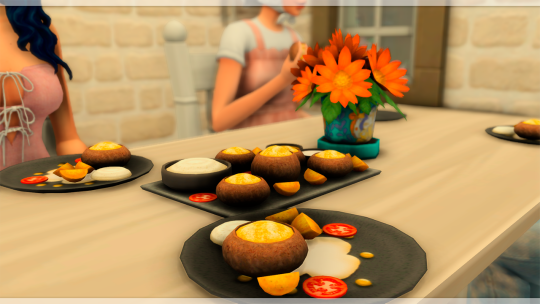
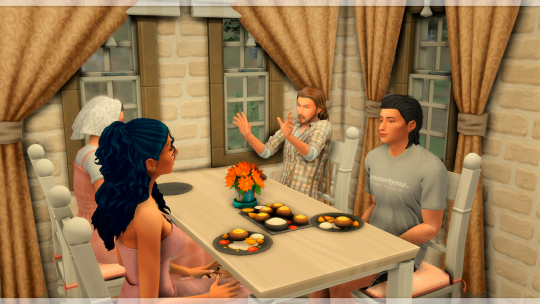
У нас тут ужин семейный между прочим... И мы никого не ждали
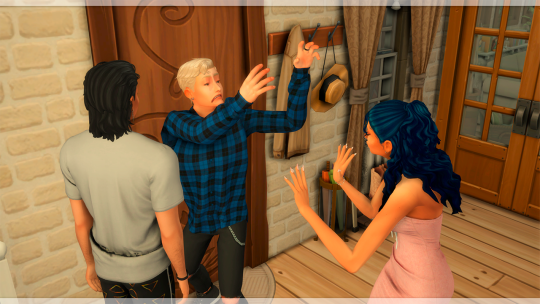
Я хотела просто его проигнорировать, сделать вид, что никто не пришел, все нормально. Но он решил заявить о своем присутствии.
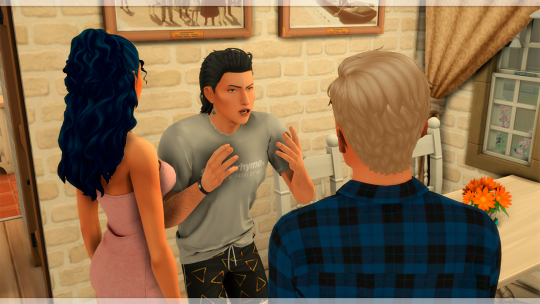
Чтож, мы с Джеем такого терпеть не намерены.
И я не писала никаких диалогов, потому что я даже не знаю, какие могут быть оправдания у этого человека. Че вообще
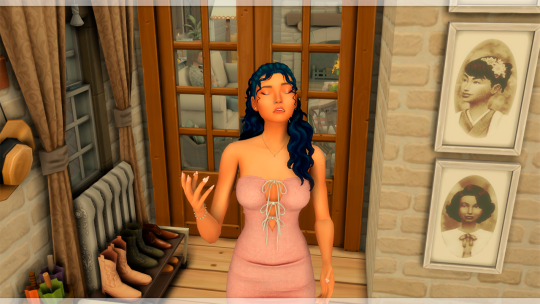
Иси правда повозникала, тип че Джей орешь (потому что она преданная и не терпит ругачек), но как бы ало, женщина, это вообще не нормальное поведение
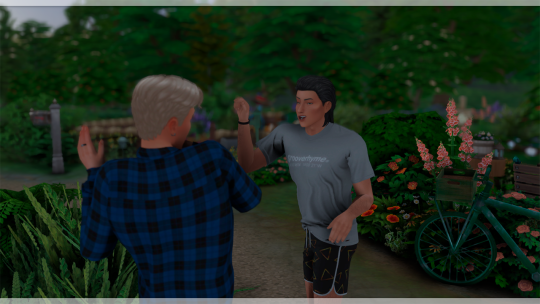
Джей просто сказал "Выйдем, поговорим" 😀
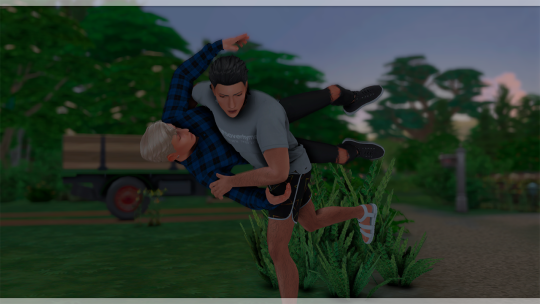
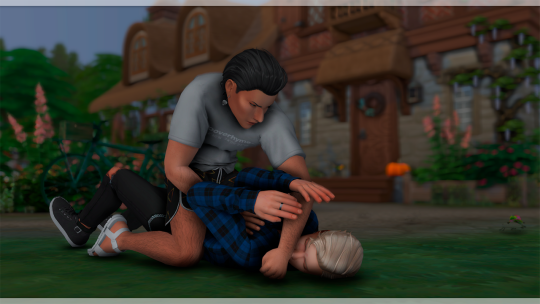

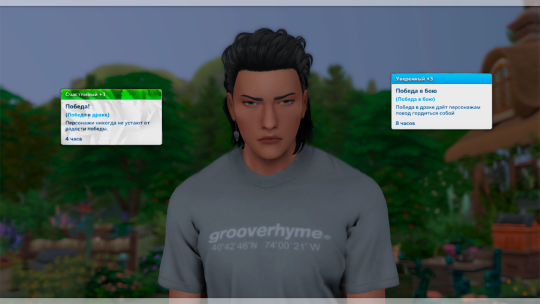
И дал п**ды, а потому что не**й
Уж простите за маты, но я уже как Джей, не могу себя в руках держать. Уже даже в деревне от него не спрячешься
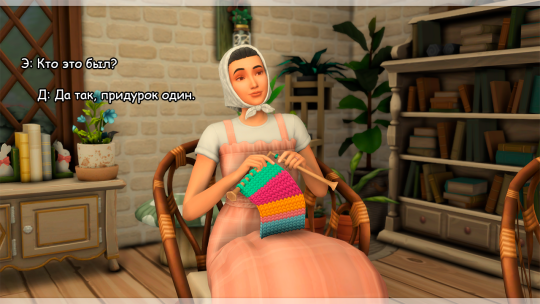
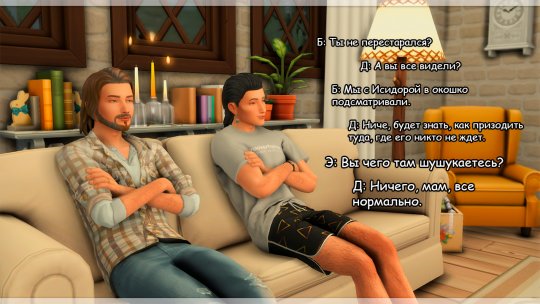
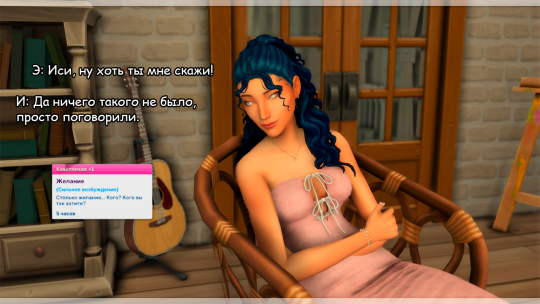
Иси с батей стояли, в окно смотрели 😀 Не сказать, что Берт такие методы одобряет, но, зная своего сына, он понял, что это уже крайние меры. А Эллу к окну не пускали, чтоб не переживала лишний раз А с Иси все понятно 😀
Если он еще раз придет, я его удалю 😡
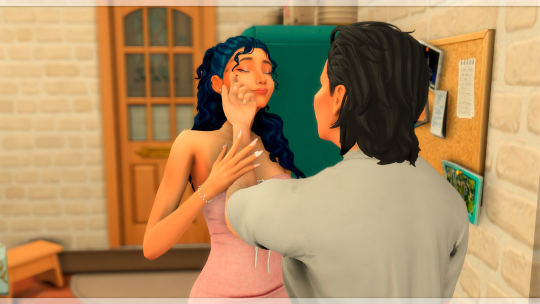
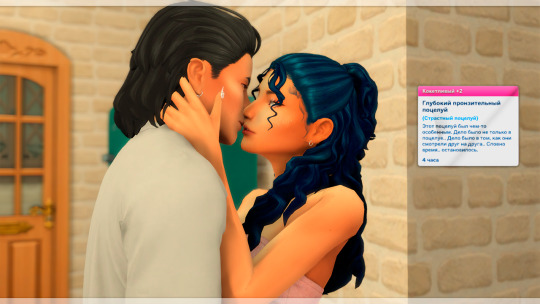
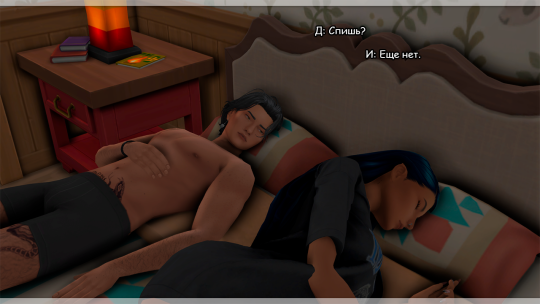
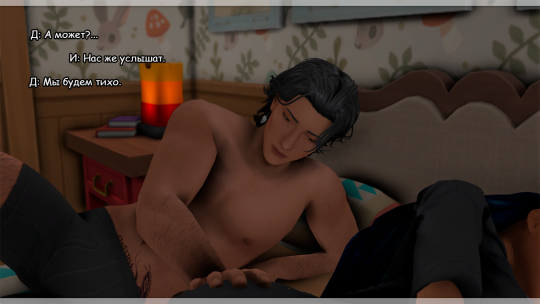
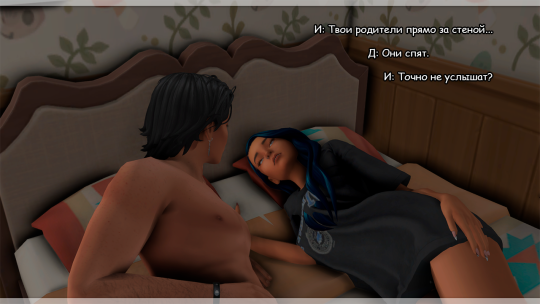
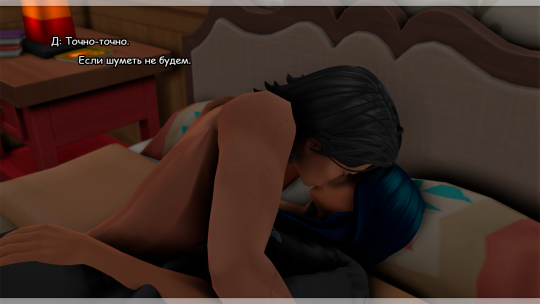

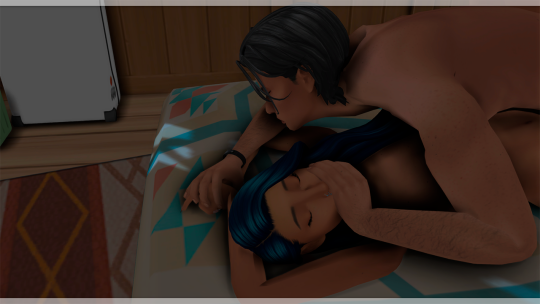
Ну а че... День был трудный Уж разочек можно и когда родители за стенкой 😀
#симс 4#симс 4 история#исидора#симс 4 геймплей#симс 4 скриншоты#simblr#ts4 simbrl#the sims 4#sims 4#sims 4 gameplay#sims 4 screenshots#the sims#gen 1#the sims 4 legacy#merilia legasy#ts4 legacy#sims 4 legacy
12 notes
·
View notes
Text

. ݁ℐ𝓃𝓉𝓇ℴ ݁𝜗𝜚
п р о ф е с с и о н а л ь н ы й а н г е л
I s p e a k r u s s i a n , e n g l i s h , f r e n c h a n d s w e d i s h
S h e / h e r
𝖳 𝗁 𝗂 𝗌 𝗂 𝗌 𝖼 𝗁 𝖺 𝗈 𝗍 𝗂 𝖼
#ballet#coquette#girlblogging#hell is a teenage girl#this is a girlblog#gaslight gatekeep girlboss#angelcore#angel#coqeutte#coqette#doll collector#dollette#bimbo doll#dollcore#coquette dollete#ангел#proan4#bambi doll#girlhood#lana del ray aka lizzy grant#lana del ray aesthetic#lana unreleased#lizzy grant aesthetic#ultraviolence#vintage americana#morute#viral#viralpost
13 notes
·
View notes
Text
The dropouts (part 4)
Masterlist
Part 1 I Part 2 I Part 3 I you are here I Part 5 I Part 6
Genre: Angst, hurt/comfort, action, slow burn.
Pairing: Olga 'Zhar' Samoilova (OC) x Nikto
Summary: Some things you teach Chimeras, other things - they teach you.
TWs: This whole series will be revolving around a person living with an acute dissociative disorder. Swearing.
AN: I am very happy to welcome my dear Phayvanh "Nak" Sotsvahn She belongs to @vasyandii who helped me make this chapter happen.

This seemed like a good idea until Nikto actually turned it into reality. It was quiet in his head while he planned the class and arranged his visit to the Chimera base, the voices didn't awake even on his way there…
But now as he's sitting in a room gradually filling with Chimera soldiers, reading a list of names again and again, skipping a few crossed out ones, they come to life.
“What if she comes?”
“She's going to ruin everything.”
“If she dares, I will ruin her.”
“No, you won't. Too soft. Weak.”
“Let us get closer to her. Let us look. Touch. Break.”
“Vsye v poryadke?*” Nikto flinches, noticing a short figure beside his chair. He raises his eyes on a young woman.
To Nikto she looks slight, almost delicate. But an air of determination, he can almost taste around her, seems at odds with her youthful appearance. He feels a pang of something akin to sorrow mixed with fury. She looks almost too young to be here, too young to have been thrust into the harsh realities of war.
Forcing himself to look away, he returns to the list in his hand and finds a name that might suit her.
“Ty Phay- Fai- Fai-vahn, da?*” He tries his best to not butcher the unfamiliar name.
The woman freezes for a moment, her body tenses, posture grows defensive. She reaches out, pulls the sheet of paper out of his hands and writes ‘П-А-Й-В-А-Н’ next to her name.
“Ne pytaisya po-anliyski chitat`. Vot tak nado.*” She hands the paper back.
Nikto thanks her awkwardly. Chimeras seem to know more about him, at least they all figured out what language is his native even before he opened his mouth.
“Think the mask will keep you from losing your face?”
“Her name is crossed out, but she will come just to laugh at us.”
“At least this way she might notice us.”
“Shut up,” he hisses, seemingly quiet, but all the noises die in the class in the very same moment.
Soldiers look at him with the silent intensity, and the last bits of confidence leave Nikto. He knows how to command, how to force in the worst case scenario, but this is new. Here he has to tell his story, not missing a single detail, and make sure they remember him well. He might have started this all just to meet Zhar again, but Nikto is damn serious about this training. If it helps to make their lives longer, if it helps her in any way…
“I'm Nikto. I will teach you some major survival tactics in prolonged tortures. We will have this evening and tomorrow to get things done.” He decides to skip the embarrassing part where he explains, that the ‘shut up’ wasn't meant for the auditorium.
Phayvanh opens a notebook with such a mundane expression, as if they hear such lectures on a daily basis. Next to her sits Krueger with his arms crossed on the chest. At the base, he abandons his tactical net, so nothing masks his crooked smirk, when he raises a hand and asks without waiting.
“What makes you the expert?”
Nikto stops roaming through his notes and looks up. His gaze seems to make even Krueger uncomfortable, so he clarifies the question.
“Each of us here has some experience in… interrogations. Some more, others - less. What gets you to be the guy before the white board.”
Nikto huffs. “My story is not that fun to hear.”
Or to tell.
“Come on, man. This is not a Sunday book club with little tea cups and cucumber sandwiches.” Phayvanh punches Krueger under the desk, but he goes on. “Show off, brag, shine a little, friend. How much they held you? A week? Two?”
Niktos eyes harden. Something told him, this might end this way, yet, he hoped, it wouldn't. He tells himself, it's not about his vulnerability - it's about the stakes, he will be talking about, as his fingers reach the first strap of his mask. The stakes they will have to be ready to make after these classes. He takes the last look at the room and makes sure once again, she is nowhere around.
With slow, deliberate movements, Nikto unfastens the mask. He hesitates for a moment, then pulls it away, revealing the full extent of his injuries.
There are no shocked gasps heard - only a lone whistle and someones muffled ‘fuck’ reaching his ears. Because what he shows them is not just a few scratches - it is a battlefield and a grave. His skin is heavily scarred and burnt, twisted in unnatural ways. Half of his left ear is missing, and his cheek bears deep, jagged lines. His face is enough to make some people run in fear. Not from him, but from the amount of pain one can survive. “The living will envy the dead” - that's what his face is about.
“Two thousand forty-one hour. Eighty-five days.” His tone is flat, calm even. It's not his place to share his pain - only his expertise.
***
Their class goes surprisingly well. Chimera soldiers are catching every word leaving his mouth and ask smart questions, that sometimes leave Nikto himself wondering if there is a right answer to them. Although he hasn't that much of a theory teaching experience, his first try at it feels nice, kind of empowering even.
Nikto lets the feeling sink in after everybody else leave the room. Usually his guts would tell him otherwise, but right now sitting here in peace without half of his gear and completely unarmed feels ok. For some weird reason, nothing seems to be able to bother him.
He fixes the straps of his mask, making sure it sits firmly again, and leaves to an already empty hall. Distant echoes of chatter and ambient noises barely reach this place. Without any thought behind it, Nikto just turns left and walks to see if this road leads him anywhere but an endless row of closed doors. He isn't trying to be nosey - just wants to give his legs a stretch.
To his relief, there is in fact one door open wide. It must their gymnasium - a dimly lit hall, the fading daylight casting long shadows across the room. The faint sound of punching and the rhythmic thuds of kicks echoes softly, punctuating the otherwise still air. In the far corner, illuminated by a solitary overhead light, Zhar is training with fierce determination.
Nikto doesn't know much about art, doesn't really care about all these museums, pictures, statues. He is as far from this world as it is possible. He thought, his knife collection is the nearest thing to art, he ever saw. But right now this changes forever deep in his mind. Because he sees art.
She moves with a fluid grace, each punch and kick precise and powerful. Despite not so young age, her form is impeccable, her movements a blend of strength and agility. The dummy in front of her bears the brunt of her relentless assault, swaying with each impact.
“How is this possible?”
“How is she possible?”
Nikto ignores awakening voices and watches, captivated by the raw power and beauty of her movements. He had seen many soldiers train, but there is something different about her - something that set her apart. And Nikto feels that just one more minutes needs to pass, and he will understand, what's the secret behind her movements.
“Stop ogling my lieutenant.” Nikto quickly turns back and meets Nikolais smirk. “Stop ogling my lieutenant and go talk to her.”
Before Nikto has time to react - Chimeras leader pushes him forward.
“I was looking for where you guys eat. Just the wrong door,” grumbles Nikto quietly.
“Mhm, of course,” hisses Nikolai and giving him a final push adds louder “Olya, look who came to visit you!”
Dammit. So much for trying to not be a creep.
“Is it my little-” She turns back to them and a wide bright smile on her face weakens. “Oh. Hi.”
He still mentally disputes on turning back and leaving, but Olga steps away from the dummy and reaches out to him, so Nikto comes closer not wanting to make her wait awkwardly for a handshake.
“Nice having you here. Sorry for skipping your class, my last meeting ended way too late.” A touch of her fingers against his exposed skin echoes down his spine. Nikto tries to shake the feeling off with a joke.
“Nah, this won't be on the test anyways.”
She chuckles. Nikto saw her ‘work smile’ and he genuinely hated it. Too plastic, too fake for his tastes. But this is completely different - Olga somehow makes the whole room brighter and more safe. A subtle ornament or crinkles at the corners of her eyes, two soft dimples, the way she throws her head slightly back - this all feels precious, important. He drinks in the sight of her as she returns to the dummy.
“I want to work on one last thing here and then I'll go show you our common room, ok?”
She wants him to stay here? She will feel safe?
“No objections, lt.” Nikto leans against the wall watching her readjusting the dummy.
Zhar loosens a few fastenings around the dummies base and tries to move the main construction up, but it remains steady. She grunts and tries again, but nothing changes.
“Andrei, mat` tvoyu, ne nachinai!*” Nikto flinches at these words and looks at Olga.
Not entirely sure if he even got what she said, Zhar adds embarrassedly ‘I was talking to the dummy, we call him Andrei. This thing’s seen better days’.
“Then we happen to share a name.”
Nikto approaches and tries to help her readjust an old cranky construction, but the outcome is the same. "How about you train on me instead?" he suggests. "I'm taller, and I can take a hit."
“I don't enjoy the concept of treating a fellow soldier like a punching doll.” Olga frowns and shakes her head.
“Nah, you won't even notice the difference. Same name, same attitude. Besides, it's not like you can hurt me," he adds with a short chuckle. This last phrase may have been uncalled-for, because the lieutenant moves away from him a couple of steps and takes a fighting stance.
“My rear hook is getting worse lately. Need to work on it.” Zhar takes a deep breath, centering herself. “But I'm not beating a guy who doesn't defend himself. Thought, you remembered it after the first time we met.”
Ouch. So she does bite back when provoked.
Nikto raises his hands slightly, ready to block if needed. “Whenever you’re ready,” he says, his tone seemingly flat despite the voices forming a good dozen of less neutral reactions.
Her eyes lock onto him, determination flaring anew. She begins with a series of high punches, aiming for his shoulder level. He blocks and parries, his movements fluid and controlled. She quickly adjusts her stance, her confidence growing as she finds her rhythm.
Her kicks come faster now, more precise. Yet Nikto notices the slightest pause in the middle of her rear hooks, just as she claimed.
“You’ve got quite a punch,” he notices. “Keep going, don’t hold back. A bit faster so that I can't catch you in the middle of it.”
She pushes herself harder, her strikes becoming more aggressive, but there's still this little slowdown in the middle of her blow. And Nikto uses his reaction to demonstrate it. He meets her hand in the midflight and pulls her forward, causing Olga to lose her stance and improvise. She opts for another blow, Nikto feels that he's lacking time to keep pulling her and evade the punch at the same time, but still highers the other hand to defend himself.
It all happens so fast, he doesn't realize at first, what exactly he's done. His hand slides forward, and she hisses, when his wrist grazes against her head. He lowers his hand, but for some reason she follows it, falling on her knees before him.
Nikto freezes in certainty for a moment and descends after her. Zhar reaches out to his hand and tries to pull it slowly away, and he finally sees it. The massive clasp on the sleeve of his suit got tangled in her hair, causing pain with every movement.
He curses and immediately starts untangling it.
“I'm sorry, I didn't think, fu-”
“The hell are you sorry about?” Olga cuts him off, and he notices that there is no fear or pain in her face expression - only calm satisfaction. “I came unprepared - I had it coming. Good fight, soldier.”
As he helps her to untangle the last strands of hair and stand up, it slowly gets to him: while he is here - she treats him as one of her own, and that includes celebrating his victories, even those that might feel undeserved. This is a strange feeling, but he likes it: to not just be here, but to belong, stay a part of something, she pours her heart into.
***
It's not every day that Chimeras second in command walks in the common room with a sweet smile and without someone torturing her on the phone. Even on a more rare occasion does she stay in the dining area and not just grab whatever is left to eat and retreats back to her office. So while everybody tries to not be too obvious with their interest - they still can't hold back occasional long gazes. At some point, Krueger even suggest that he goes to join Zhar and their guest instructor, but Phayvanh grips his shoulder and pulls him back.
“You sit here and don't spoil anything.” Naks voice is cold and commanding.
***
After the dinner, Zhar leads Nikto through the living section of the base. Sometimes she excuses for the state of wall paint or an old door. ‘We are moving soon, so we didn't do any renovations here lately,’ she tells as if Nikto came here to inspect the state of their spaces.
“I figured, you would like a room with more privacy. No shared bathrooms, a more quiet part of the building, and so on. Due to the…” she draws a circle in the air in front of her face and Nikto guesses that she is talking about his mask.
Usually this detail only causes annoying questions. But with her everything is different. No jokes, no unpleasant attention - just an attempt to help.
“Thank you,” he exhales as Olga unlocks the door.
At first glance, Nikto realizes that this is someone's room. Papers on the desk, a jacket hanging on the back of a chair, something large and shapeless lying in the far corner of the bed - it turns out to be a shark plushie, all this suggests that someone already lives here.
"Will the tenant mind?" He freezes on the threshold, looking at her with disbelief.
“This is my room,” she answers innocently.
“But what about...” Nikto points at the bed.
"Oh no, there was only one bed, what should they do!” Zhar sighs in an exaggerated, theatrical manner and cracks laughing. “Don't worry - I'm not going to sleep today anyway. I'm leaving in the night, need to pay a visit to our new base. Until then - I have a ton of work waiting for me in my office anyway.”
“But-”
“Nikto, enough ‘buts’. Our free rooms serve as storages now, I can't materialize an extra bed for you out of thin air, and I'm not letting our guest sleep on a floor.” She pats his shoulder and pushes him deeper in the room. “If you need anything - my office is three doors down the hall.”
She doesn't leave him any time to react, closing the door.
*Vsye v poryadke? - (here and further Russian) Everything's alright?
*Ty Phay- Fai- Fai-vahn, da? - Youre Phay- Fai- Fai-vahn, yes?
*Ne pytaisya po-anliyski chitat`. Vot tak nado. - Dont try to read it as if was in English. Heres the way to pronounce it
*Andrei, mat` tvoyu, ne nachinai! - Andrei, for fucks sake, don't start this now!
#cod mw2#cod#cod modern warfare#call of duty#cod x reader#call of duty mw2#nikto angst#nikto x you#nikto cod#mw2 nikto#mwii nikto#nikto fluff#nikto x reader#andre nikto#call of duty nikto#nikto#cod nikto#nikto x oc
26 notes
·
View notes